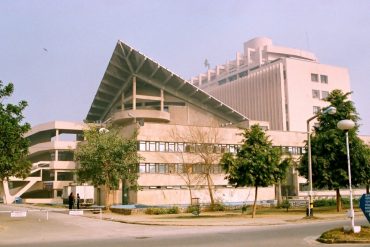New Delhi, May 17 (IANS) The Supreme Court has said that an order that has been obtained by an accused by practising fraud and suppression of facts could not be allowed to survive and it was obligated to set aside such an order.
“A victim of a crime has as much right to get justice from the court as an accused who enjoys the benefit of innocence till the allegations are proven against him,” said a bench of Justice K.S. Radhakrishnan and Justice Dipak Misra in their judgment pronounced Thursday.
The court said this while setting aside the order of the Rajasthan High Court and that of an additional district and sessions judge, Jodhpur and restoring the order of the additional chief judicial magistrate summoning Prem Prakash to face trial in the wake of a complaint received by it.
In the instant case, on a plea by one Prem Prakash, the additional district and session judge, Jodhpur, quashed the order of the additional chief judicial magistrate taking cognizance of a protest petition and summoned him through arrest warrant. The judge quashed it holding that when the offences were triable by the session’s court, the magistrate could not have taken cognizance on the basis of a protest petition.
However, it was held back from the court of the judge, that another additional district and sessions judge at Jodhpur had, after hearing detailed arguments, July 27, 2009 framed the charges against the accused that included Prem Prakash.
Holding that it was clear case of suppression, the court said, “…though the respondent was fully aware about the fact that charges had been framed against him by the learned trial Judge, yet he did not bring the same to the notice of the revisional court hearing the revision against the order taking cognizance”.
“Any one who takes recourse to method of suppression in a court of law, is, in actuality, playing fraud with the court, and the maxim supressio veri, expression faisi, i.e., suppression of the truth is equivalent to the expression of falsehood, gets attracted,” said Justice Misra pronouncing the judgment.
Noting that as the order has been obtained by practising fraud and suppressing material fact before a court of law to gain advantage, the court said that it cannot be allowed to stand.
Invoking its powers under article 142 of the constitution, the court said that “cognizance of the offences had been rightly taken by the learned Magistrate and charges, as we find, have been correctly framed by the learned trial Judge”.
The court said that when an order of quashment of summons has been obtained by suppression of facts, “this court has an obligation to set aside the said order and restore the order framing charges and direct the trial to go on”.
The opinions, beliefs and viewpoints expressed by authors, news service providers on this page do not necessarily reflect the opinions, beliefs and viewpoints of Hill Post. Any views or opinions are not intended to malign any religion, ethnic group, club, organization, company, or individual.
Hill Post makes no representations as to the accuracy or completeness of any information on this site page.



